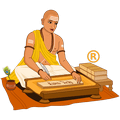























Sunrise06:48
Sunset19:04
Moonrise19:32
Moonset06:50
Shaka Samvat2125 Shobhakrit
Vikram Samvat2260 Siddharthi
Gujarati Samvat2259 Aananda
Amanta MonthBhadrapada
Purnimanta MonthAshwina
WeekdayGuruwara
PakshaKrishna Paksha
TithiPratipada upto 03:59, Sep 23
NakshatraPurva Bhadrapada upto 07:58
YogaGanda upto 21:39
KaranaBalava upto 16:32
KaranaKaulava upto 03:59, Sep 23
Pravishte/Gate3
Rahu Kalam14:28 to 16:00
Gulikai Kalam09:52 to 11:24
Yamaganda06:48 to 08:20
Abhijit12:31 to 13:20
Dur Muhurtam10:53 to 11:42
Dur Muhurtam15:47 to 16:36
Amrit Kalam02:54, Sep 23 to 04:29, Sep 23
Varjyam17:26 to 19:01
Notes: All timings are represented in 24-hour notation in local time of High Wycombe, United Kingdom with DST adjustment (if applicable).
Hours which are past midnight are suffixed with next day date. In Panchang day starts and ends with sunrise.


 Mesha
Mesha Ashwini 23:53
Ashwini 23:53

 Vrishabha 07:23
Vrishabha 07:23 Mrigashira 18:33
Mrigashira 18:33

 Mithuna 09:26
Mithuna 09:26 Punarvasu 15:00
Punarvasu 15:00

 Simha
Simha Magha 10:26
Magha 10:26

 Tula 07:17
Tula 07:17 Vishakha 13:51
Vishakha 13:51

 Vrishchika
Vrishchika Anuradha 16:27
Anuradha 16:27

 Vrishchika 19:20
Vrishchika 19:20 Jyeshtha 19:20
Jyeshtha 19:20

 Dhanu
Dhanu Mula 22:19
Mula 22:19

 Dhanu
Dhanu P Ashadha 25:09+
P Ashadha 25:09+

 Kumbha
Kumbha Dhanishtha 07:00
Dhanishtha 07:00

 Kumbha 25:59+
Kumbha 25:59+ Shatabhisha 07:47
Shatabhisha 07:47

 Meena
Meena U Bhadrapada 07:38
U Bhadrapada 07:38

 Meena 06:53
Meena 06:53 Revati 06:53
Revati 06:53

 Mesha 10:09
Mesha 10:09 Krittika 27:04+
Krittika 27:04+

 Vrishabha
Vrishabha Rohini 25:36+
Rohini 25:36+

 Mithuna 15:46
Mithuna 15:46 Punarvasu 21:27
Punarvasu 21:27In Hindu Calendar, the day starts with local sunrise and ends with next day local sunrise. As sunrise time is different for all cities, Hindu Calendar made for one city is not valid for any other city. Hence it is important to use location based Hindu Calendar, like this website. Further, each Hindu day consists of five elements, which are called angas. These five elements are -
In Hindu Calendar, all five elements together are called Panchang. (In Sanskrit: Panchang = Pancha (five) + Ang (part)). Hence Hindu Calendar which shows all five elements for each day is called Panchang. In South India Panchang is known as Panchangam.
When Hindu Calendar includes Muslims, Sikh, Christian, Buddhist and Jain festivals, including national holidays, it is called as Indian Calendar.